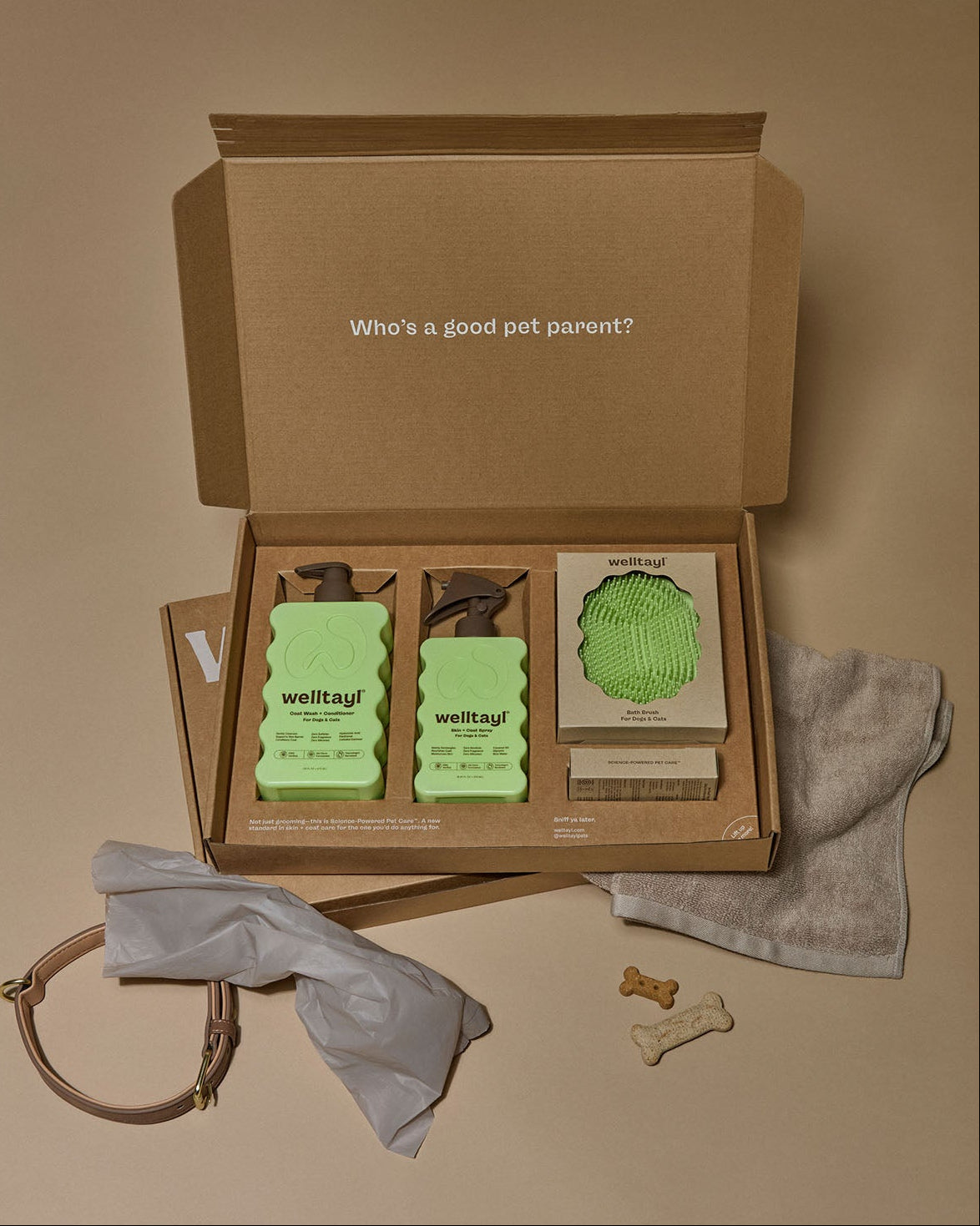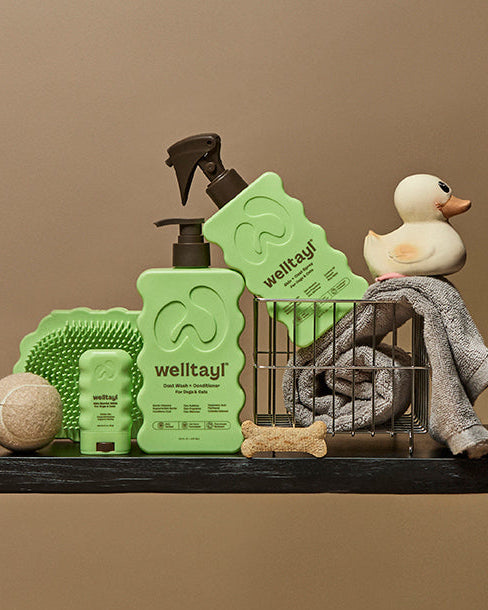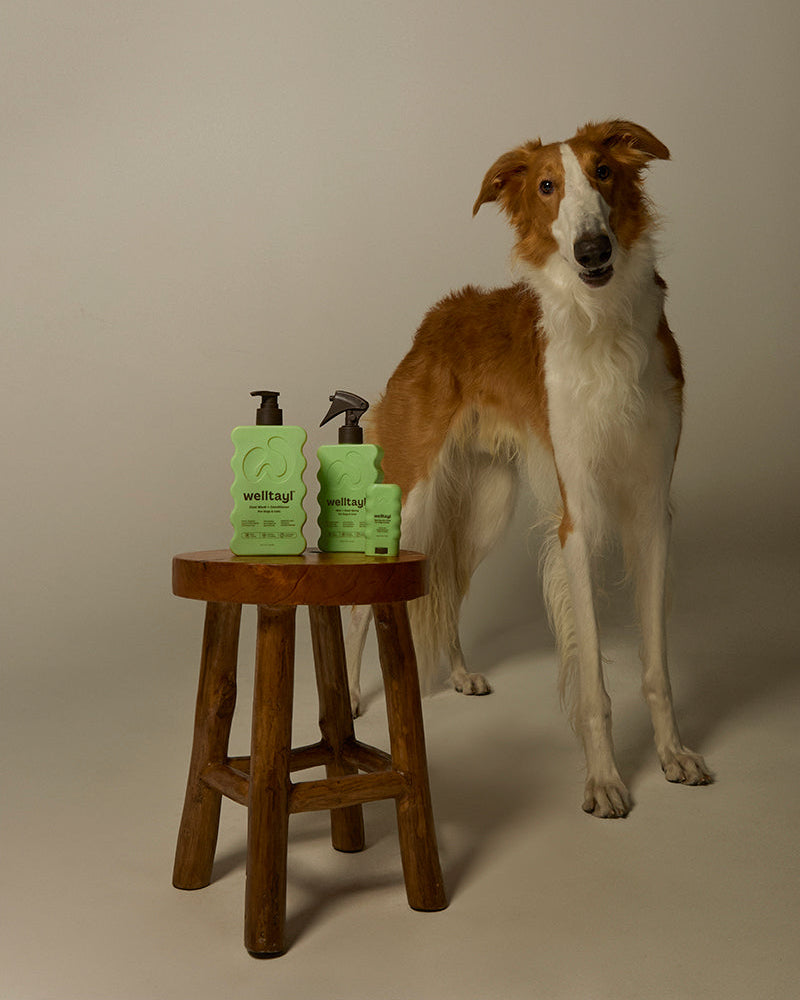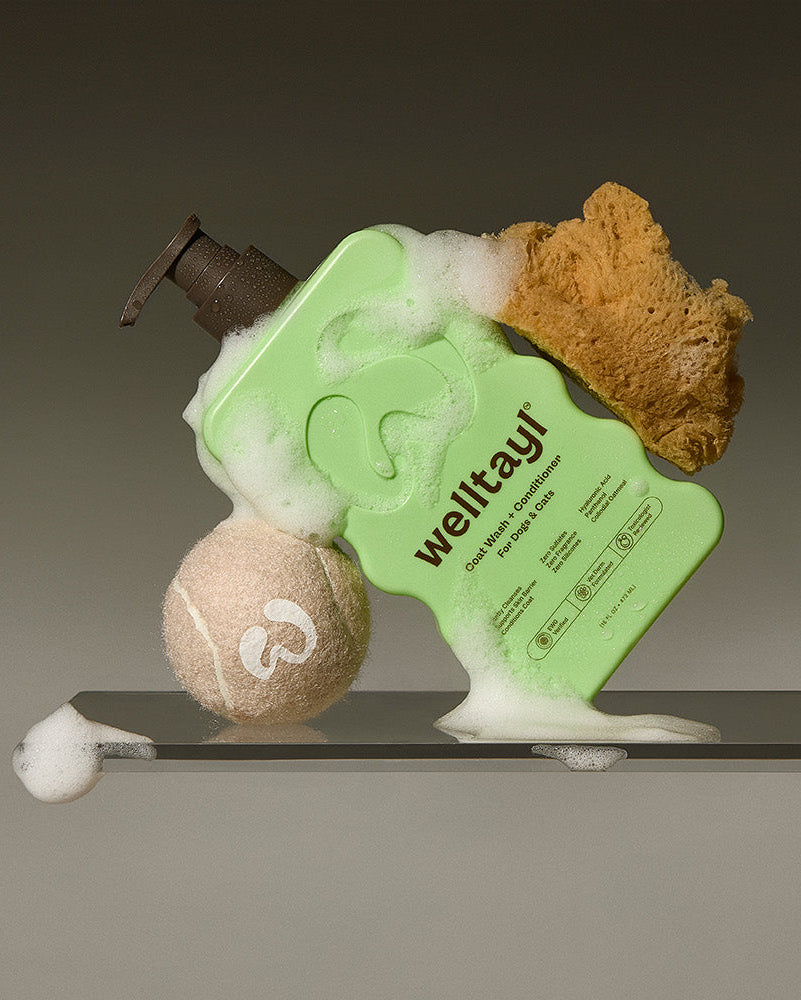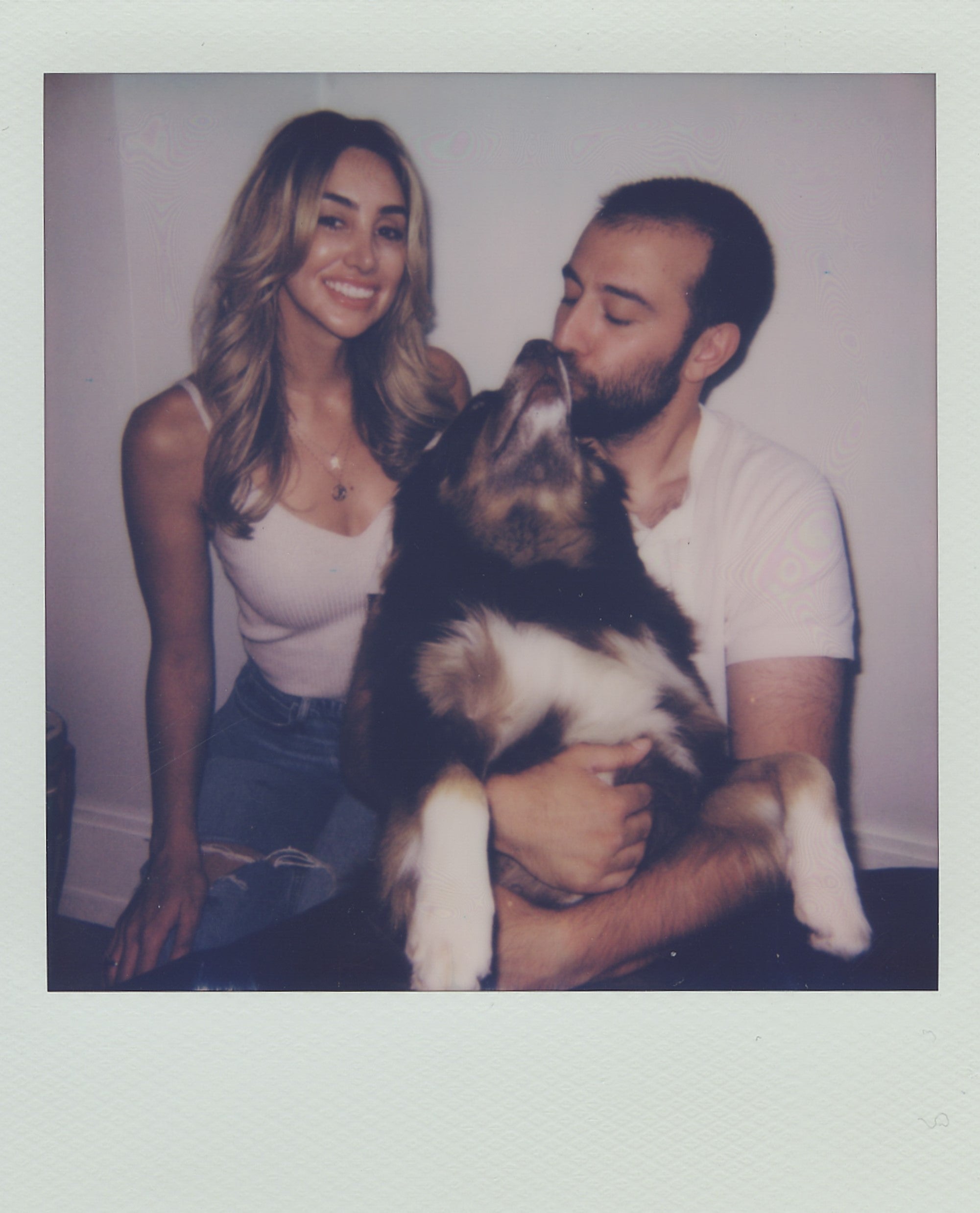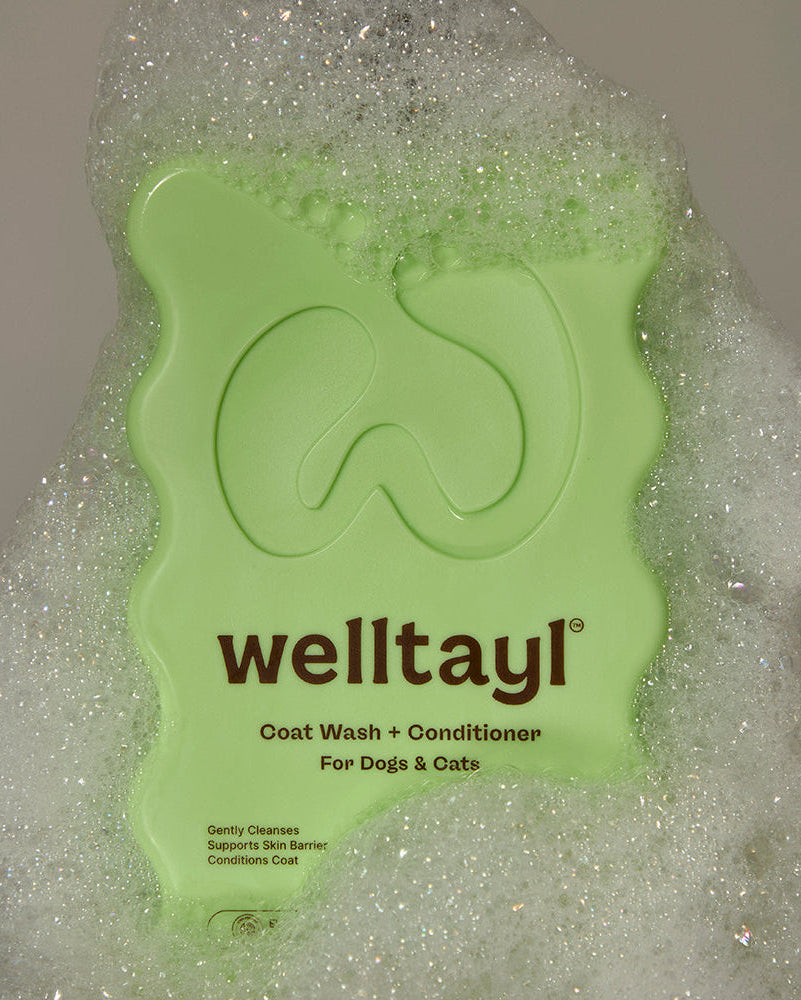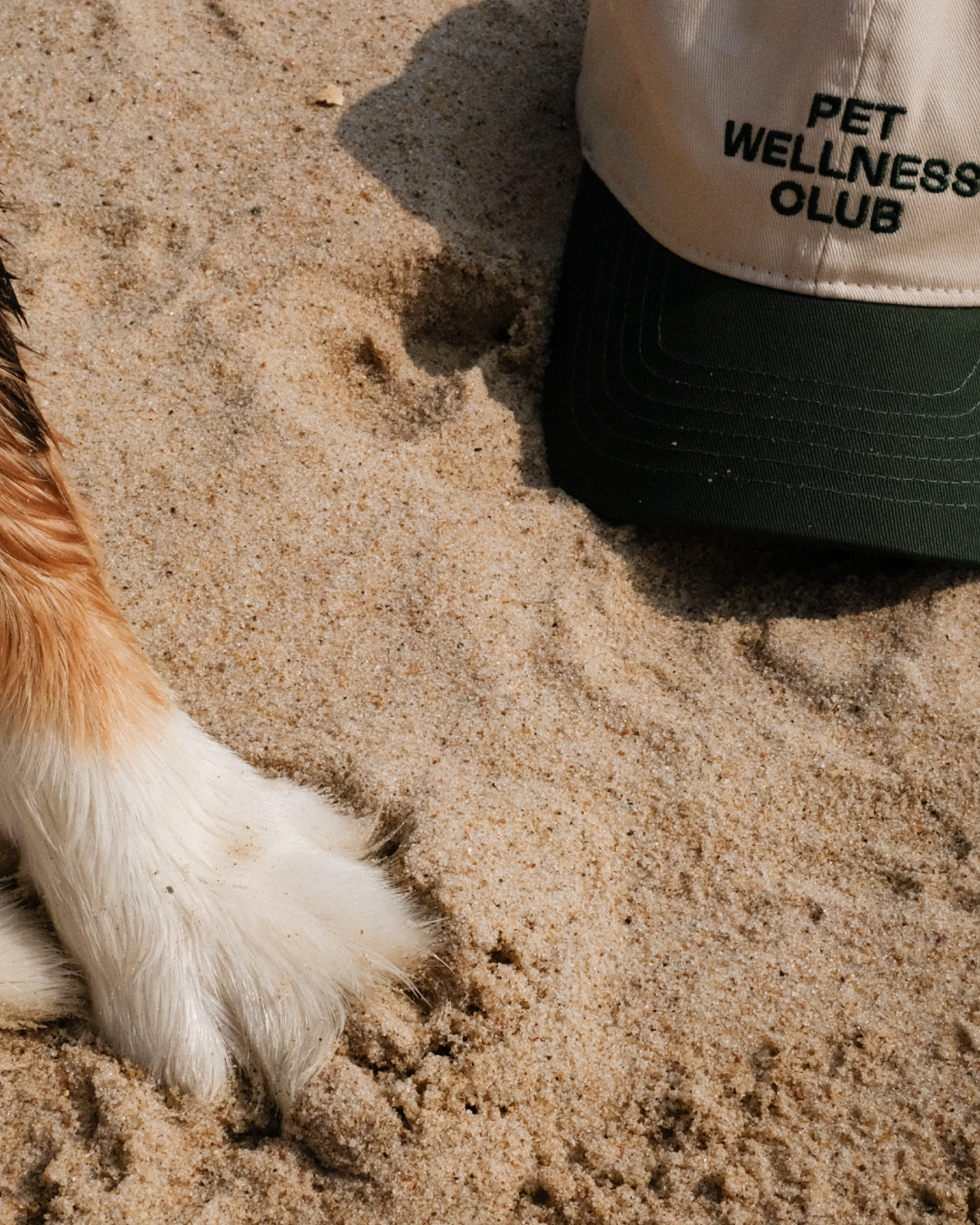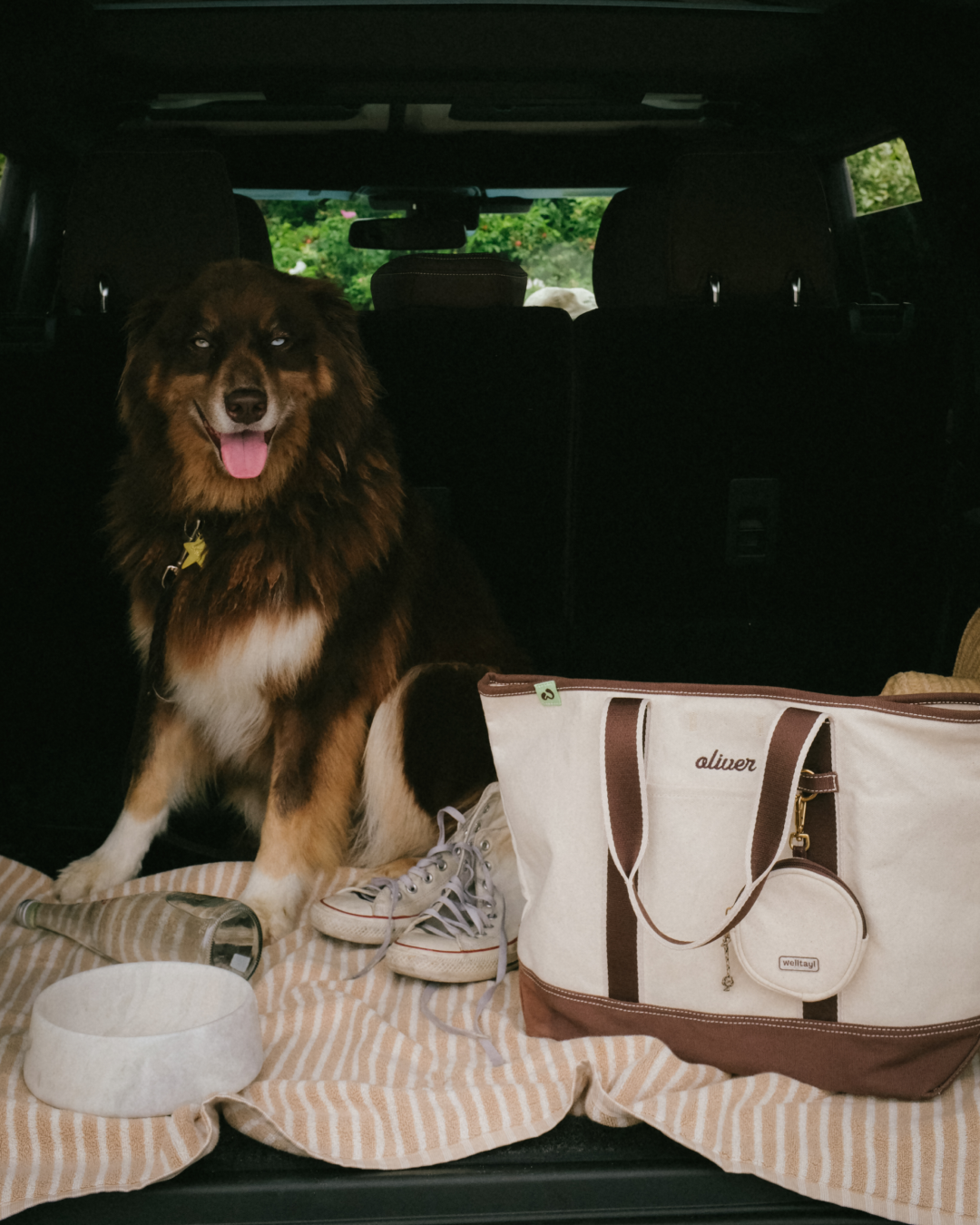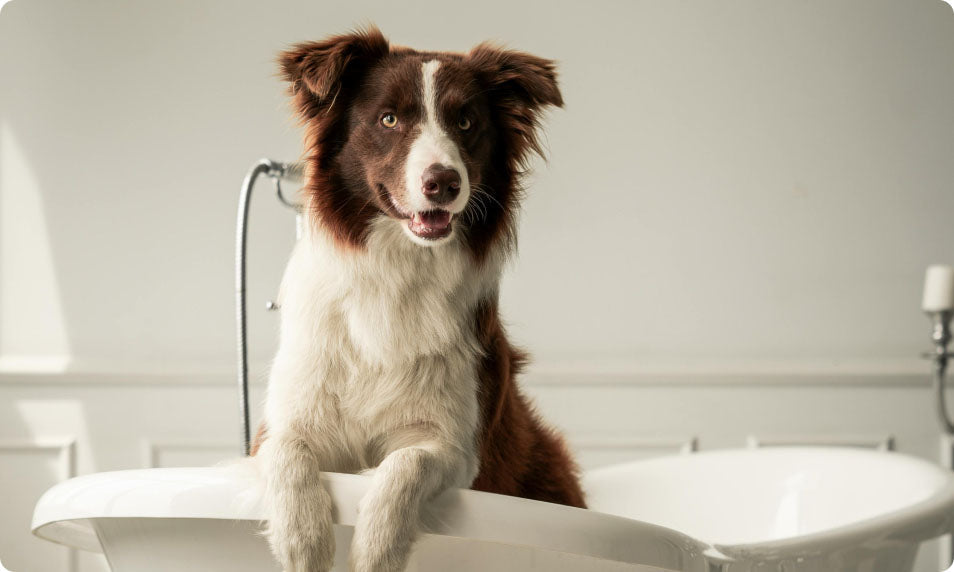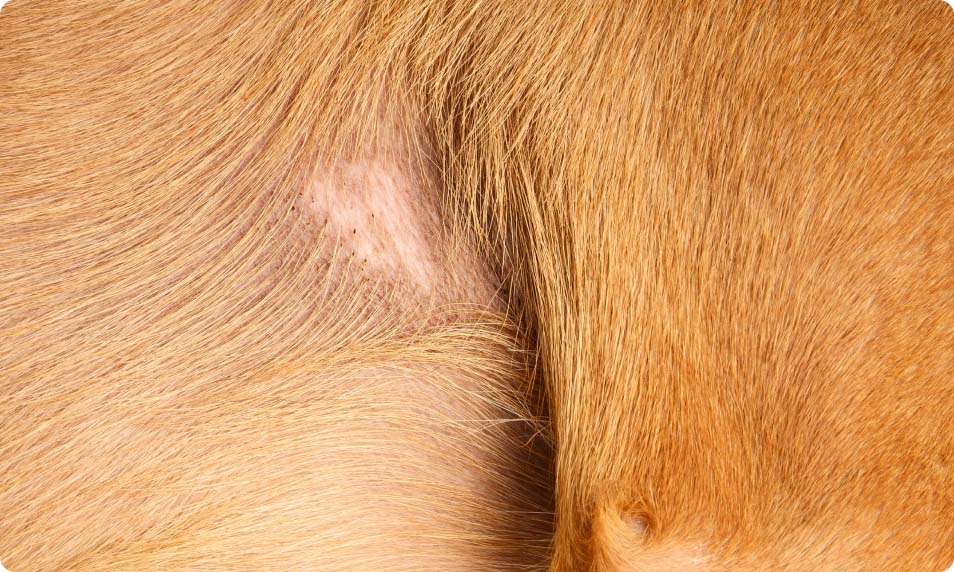It's time for a bath, but what happens when you reach for the dog shampoo and find the bottle empty? You might eye your own shampoo and wonder, can you really use human shampoo on dogs? It's a common question that pet owners face, as the response directly impacts their dog's well-being. Human shampoo isn't just a poor substitute; it can actually pose risks to your dog's skin and overall well-being.
Understanding the differences between human and dog skin is key to recognizing why human shampoo can harm your pet. Dogs have a different pH level making their skin more vulnerable to irritation and health issues when washed with products designed for humans.
Table of Contents:
- Key Takeaways
- The Role of Sebum in Dog Skin Health
- Why Human Shampoo is Harmful for Dogs
- How to Properly Bathe Your Dog
- Conclusion
- Frequently Asked Questions
Key Takeaways
- 🧴 Human Shampoo Can Harm Dogs: Using human shampoo on dogs disrupts their skin's pH balance and strips away natural oils, leading to dryness, irritation, and potential infections. Opt for dog-specific shampoos that address their distinct skin requirements.
- ⚠️ Potential Health Issues: The wrong shampoo can cause allergic reactions, damage the protective sebum layer, and lead to long-term skin problems. Ingredients in human shampoos can be overly harsh for dogs, underscoring the necessity of choosing appropriate pet grooming products.
- 🛁 Choosing the Right Dog Shampoo: Consider your dog's skin condition and opt for shampoos with natural ingredients, like Welltayl's Coat Wash + Conditioner, avoiding harsh chemicals and fragrances. Consult with your veterinarian beforehand if your dog needs hypoallergenic or medicated shampoo.
- 🔄 Alternatives and Frequency: In emergencies, baby shampoo or Dawn dish soap can serve as temporary solutions, but regular use is not recommended due to pH imbalances. Generally, dogs should be bathed once a month, though this varies based on breed, activity level, and specific skin conditions.
- 📬 Stay Informed for Optimal Care: Subscribing to our pet care newsletter provides valuable tips and updates on ensuring your dog's health and well-being, reinforcing the importance of informed, consistent care practices. Sign up for more!

The Role of Sebum in Dog Skin Health
Have you ever wondered what keeps your dog's skin healthy under all that fur? It's sebum, a natural oil produced by their skin. Sebum plays a massive role in maintaining your dog's skin health, acting as a protective barrier maintaining moisture levels and keeping the skin hydrated. Imagine it as your dog's invisible shield against dirt and bacteria.
Using human shampoo on dogs can disrupt this natural balance. Human products are formulated for our skin's pH, which is significantly different from a dog's. A dog’s skin pH is between 6.5 and 7.5 while a human’s is between 4.7 and 5.7. When you wash your dog with human shampoo, it can strip away sebum, leaving their skin vulnerable to dryness, irritation, and infections.
Why Human Shampoo is Harmful for Dogs
When it comes to bathing your dog, it might be tempting to reach for your own shampoo. However, this common mistake can lead to a number of problems for your furry friend. To keep your dog feeling comfortable and their coat looking shiny, it's crucial to understand why human shampoo isn't the right choice.
Potential Allergic Reactions
Human shampoos often contain fragrances and ingredients that are not friendly to your dog's skin. Dogs can have allergic reactions to these substances, causing issues like excessive scratching, red skin, or even bald patches.
Dryness and Irritation
Again, this is mainly due to the pH level of human skin (4.7) being different from a dog's skin (6.5 to 7.5). Using human shampoo on your dog can strip away their natural oils, leaving their skin dry and irritated. This can result in excessive scratching, licking, inflammation, and redness.
Disruption of Natural Oils
Dogs have a layer of natural oils (sebum) that protect their skin and coat. Human shampoo can disrupt this layer, making your dog’s coat look dull and making them more vulnerable to infections. Imagine using a harsh dish soap to wash your hair; not only would it remove dirt, but it would also take away the essential oils, leaving your hair lifeless. The same goes for your dog – maintaining the balance of their natural oils is key for a healthy coat and skin.
Always opt for a shampoo specifically formulated for dogs to ensure their coat and skin stay healthy.
The Impact of Using Human Shampoo on Dogs
When bathing your dog, you might think, "Hey, shampoo is shampoo, right?" But using human shampoo on dogs is more like trying to use soap meant for washing dishes on your own hair. Sure, it might clean well, but it's not going to feel great afterward. Dogs have different needs for their skin and coat, and using the wrong product can lead to problems.
Immediate Effects
Right off the bat, using human shampoo on your dog can lead to noticeable discomfort. Imagine wearing a wool sweater that's way too tight – that's how your dog might feel after a bath with the wrong shampoo. Their skin could become dry, itchy, or even develop a rash. You might notice them scratching more than usual or trying to rub against furniture to soothe the irritation. This happens because human shampoo messes with their skin's pH level, which is the skin’s way of saying, "This doesn't feel right!"
Another immediate effect could be their coat looking dull or feeling sticky. Without the proper pH balance provided by dog-specific shampoos, your dog's coat can lose its natural shine and softness, making cuddle time less enjoyable for both of you.
Long-term Consequences
Continuing to use human shampoo on your dog can lead to more serious, long-term skin issues. Over time, the protective layer on your dog's skin, known as the acid mantle, can get damaged. This makes it easier for bacteria and viruses to cause infections.
Further, consistent use of inappropriate shampoo can disrupt the natural oil (sebum) production in your dog’s skin. This can lead to chronically dry skin, hot spots, or even worse, eczema. It’s similar to how plants wither without the right care; your dog's skin and coat can deteriorate without the proper nutrients and protection.
What Can I Wash My Dog With?
Finding the right product to wash your pet with is crucial for keeping their coat shiny and skin healthy. Let's dive into what you should consider when choosing a dog shampoo.
Factors to Consider
When picking out a shampoo for your dog, there are a few things you ought to keep in mind. First, consider your dog's skin condition. Does your dog have dry, flaky skin, or is it oily? Maybe your pup has sensitive skin or allergies. Consulting with your veterinarian to identify your dog's specific needs will assist you in choosing the most suitable shampoo.
Next, think about the ingredients. Natural ingredients like oatmeal, aloe vera, and coconut oil are beneficial for dogs and help maintain their coat's health. On the flip side, try to steer clear of heavy chemicals or dyes that could irritate or harm your dog's skin.
Lastly, don't forget about the scent. While a good-smelling shampoo might be appealing to you, ensure it's not too overpowering for your dog's sensitive nose. Consider using scents like rose, sandalwood, and lavender to enhance your pet's mood and promote calmness.
There are a few specialized shampoo formulas that can be considered for dogs with specific circumstances:
- Sensitive Skin Formulas: If your dog has sensitive skin, look for shampoos formulated with natural soothing ingredients like aloe vera or oatmeal. These help moisturize and calm irritated skin.
- Hypoallergenic Shampoo: For dogs with allergies, hypoallergenic shampoos are a must. They're free from harsh chemicals and fragrances that could trigger allergic reactions.
- Medicated Shampoo: In cases where your dog might be dealing with specific skin conditions like dermatitis or fleas and ticks, medicated shampoos prescribed by your vet could be the way to go.
- Deodorizing Shampoo: For those pups that love rolling around in who-knows-what, a deodorizing shampoo might be necessary. These shampoos neutralize odors and leave your dog smelling fresh.
Remember, while finding an immediate substitute in a pinch is understandable, regularly using the right dog-specific shampoo will help your dog's skin and coat remain healthy. Avoid human shampoos, as they can disrupt your dog's skin pH and cause various skin issues.

How to Properly Bathe Your Dog
Bathing your dog is essential for their health and happiness. Understanding the right way to do it ensures your furry friend stays clean and comfortable, without the risk of irritating their skin, which could happen if you use human shampoo.
Preparing for the Bath
Before you start the water, ensure you've got everything you need within reach. You'll need dog-specific shampoo, a towel, and possibly a detachable shower head or a gentle pouring jug. If your dog feels anxious about bath time, having their favorite toy or some treats handy can help soothe them, or consider using our calming lick mat for a stress-free bathtime. Make sure the room is warm enough, especially in colder months, to keep your dog comfortable. Preparing in advance prevents any last-minute scrambles that could stress out your dog further.
The Bathing Process
Start by wetting your dog's coat thoroughly with lukewarm water. Too hot or too cold of water can be uncomfortable for them. Apply a small amount of dog-specific shampoo to their coat. Remember, the shampoo you'd use for your hair isn't suitable for them due to the difference in pH levels, which could lead to skin irritation. Gently massage the appropriate shampoo into their coat, being cautious around the face, ears, and eyes. Talking to them in a calm, reassuring voice can keep them relaxed. Rinsing thoroughly is crucial to prevent any residue from irritating their skin and potentially causing discomfort or itching. Continue to rinse until no shampoo suds remain.
Post-Bath Care
After the bath, wrap your dog in a towel to soak up excess water. Depending on your dog's coat, you may need to use a hairdryer on a low, cool setting to help them dry completely. Ensure they're fully dry, especially during colder months, to prevent them from getting cold. Post-bath is also an excellent time for a quick brush to remove any loose fur and ensure their coat is smooth and tangle-free. Incorporating these steps into your routine promotes healthy skin and coat, and can transform bath time into an enjoyable experience for both of you.
Conclusion
Choosing the right shampoo for your dog is more than just a cosmetic decision — it's a healthy one. With the clear risks associated with using human shampoo on dogs, it's evident that reaching for your own bottle is not a safe shortcut. Your dog's skin health is paramount, and the right dog-specific shampoo can make all the difference. Remember, what's good for you isn't always good for your furry friend. By selecting a shampoo that's tailored to their needs, you're favoring that their coat remain shiny, their skin healthy, and their overall well-being is protected. So next time you're planning bath time, make sure you're using a product designed with your dog in mind. Your pet's happiness and health depend on it.
CTA with Sign-Up Form: If you're on the lookout for the best care tips and products for your furry friend, join the Welltayl newsletter. You'll get all the latest updates and expert advice delivered straight to your inbox, ensuring you're always one step ahead in taking care of your pet. Sign up for more!
Frequently Asked Questions
Can I Use Baby Shampoo on My Dog?
While baby shampoo might seem like a safe option due to its gentle formula, it's not the best choice for your dog in the long run. Even though baby shampoo can temporarily clean your dog's coat without immediate harm, it doesn't address the different pH balance needs of your dog's skin. For occasional use, it's less harsh than traditional human shampoos, but dog-specific shampoos are always the better option to keep your furry friend happy and healthy. Remember, what's gentle for a baby's skin isn't necessarily perfect for your dog's coat.
How Often Should I Bathe My Dog?
The frequency of baths you should give your dog depends on various factors, including breed, activity level, and skin conditions. Generally speaking, giving your dog a bath once a month is a good rule of thumb to follow. However, active dogs or those with longer coats may require more frequent baths to keep their coat clean and free of mats. It's crucial not to over-bathe your pet, as doing so can strip their coat of natural oils, leading to dryness and irritation.
What If My Dog Has a Skin Condition?
If your dog suffers from a skin condition, it is essential to consult with your veterinarian for guidance on an appropriate shampoo that specifically addresses the issue. Dog shampoos formulated for sensitive skin or specific conditions like dermatitis, allergies, or hot spots can provide relief and aid in healing. Your vet can recommend the best course of action, which may include medicated shampoos or treatments designed to soothe and heal your dog's skin.
What human shampoo is safe for dogs?
Strictly speaking, no human shampoo is entirely safe for dogs due to the pH imbalance between human skin and canine skin. Human shampoos are formulated for the pH balance of human skin, which is significantly different from that of dogs. Continual use of human shampoo on dogs can lead to skin irritation, dryness, and damage to the natural protective barrier of their coat. In emergency situations, baby shampoo can be a temporary solution, but it's not advisable for regular use.
Resources:
- "Dog skin pH effects," NCBI
- "Role of sebum in the skin barrier," NCBI
- "Shampoos for dogs with skin conditions," MDPI, SynergyLabs
- "Skin barrier of canines vs humans," PubMed
- "Effects of allergies on canine and human skin barrier," PubMed

